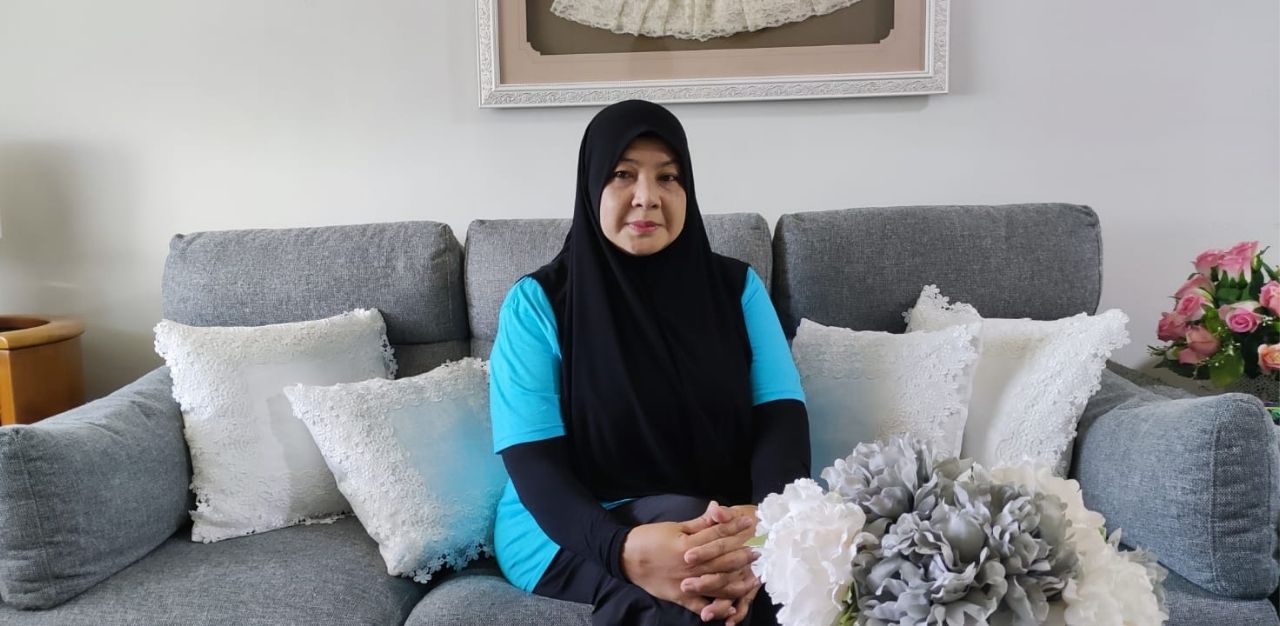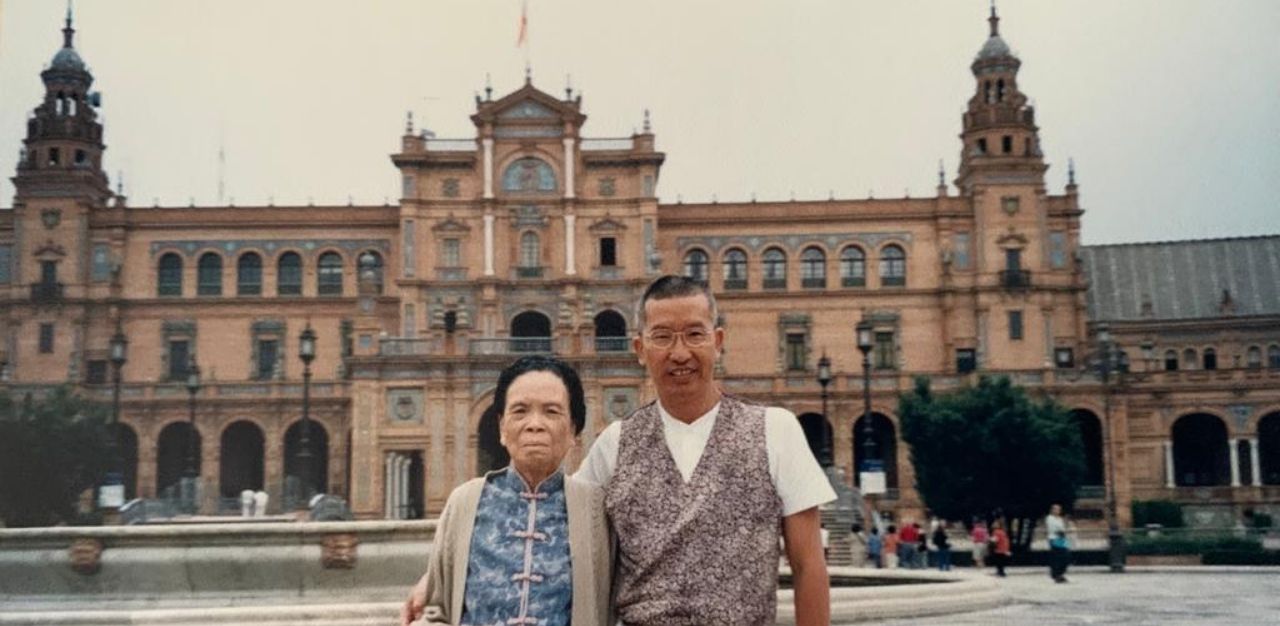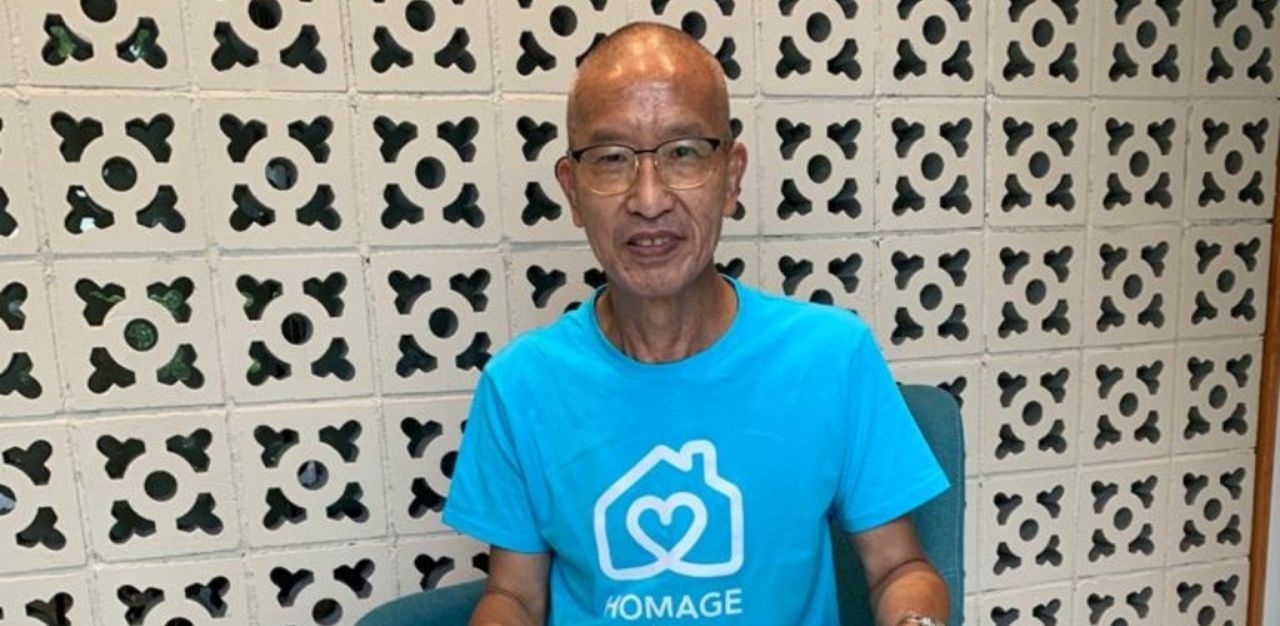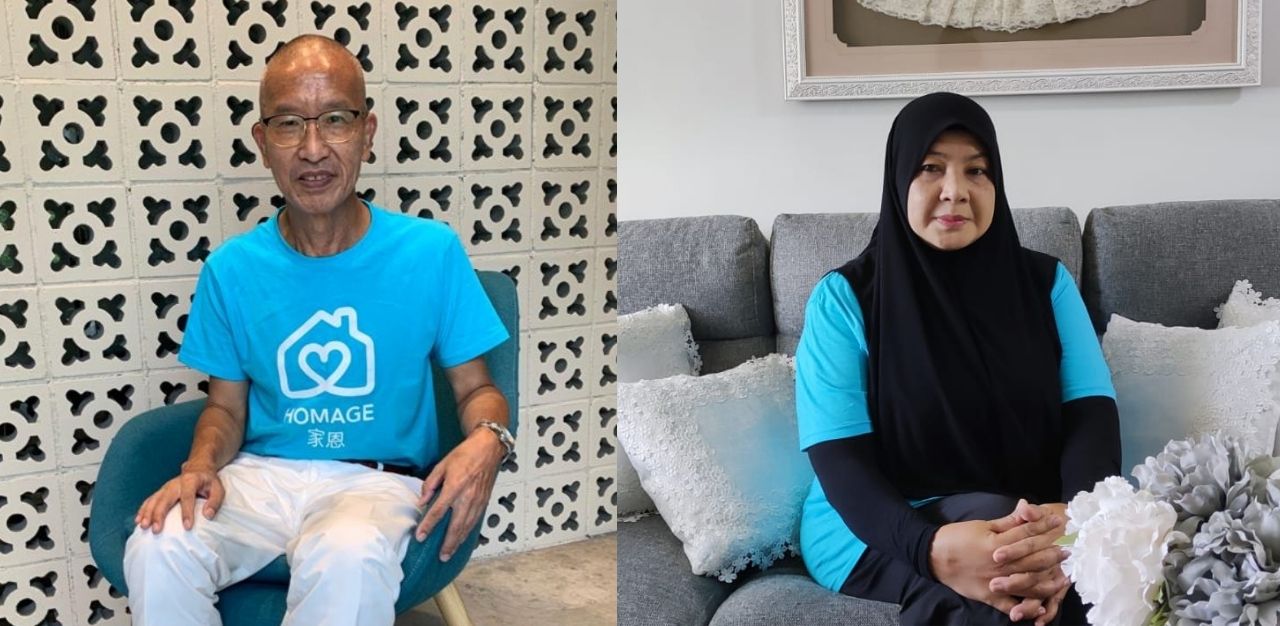Ms Salbeah Baharudin was only 29 when she found herself faced with the daunting task of taking care of her mother.
“I was young then, stronger… During that period, I spent [most of] my time with her,” she says, adding that she was living with her mother then. “[It was] 24/7, day after day. Sometimes I feel so tired… But I did it because she was my mother.”
Her mother was diagnosed with womb cancer just two years after Ms Salbeah’s father died. Being the only unmarried daughter then, Ms Salbeah took on the responsibility of caring for her mother, quitting her job just to do so.
As her siblings were all working, she would arrange for them to take care of her mother once a week, offering her a brief respite from round-the-clock caregiving. Nine months later, her mother died. “Until her last breath, I was by her side at the hospital. I [even] slept [there].”
Having taken care of everything for her mother, Ms Salbeah says she felt fulfilled. She eventually went on to have her own family, but tragedy struck in 2014 when her husband was diagnosed with Stage 4 pancreatic cancer.
“It took us by surprise because there [were] no symptoms. It happened during the fasting month. He [felt] a terrible pain in his abdomen. He went to the hospital, and after a few days and some tests, he was diagnosed.”
Ms Salbeah had just reentered the workforce that year and she found herself having to juggle caregiving responsibilities alongside her job. Since her own children were still in school, it fell on her to be the sole caregiver once again.
“He was warded in the hospital most of the time and I used to [visit] him after work, returning [home] very late, [at around] 10 plus,” she recalls.
But after a seven-month battle, her husband died the following year in March (2015). “[I took care of him] until he was sent to the Palliative Care Centre [where he took] his last breath.”
Today, Ms Salbeah is a caregiver at Homage, which provides caregiving services such as elder care, respite care, medical escort and transportation services. The 58-year-old balances her caregiving responsibilities with a part time role at a student care centre. She says she decided to try her hand at professional caregiving, since she already has prior experience taking care of both her late husband and mother.

It was not until she joined Homage in May this year (2021) that she realised being a caregiver for her own family is different from providing professional care.
Caregiver Ng Chee Yen agrees. His journey with caregiving started when his mother was diagnosed with vascular cancer at age 101.
“[Under] Homage, there are all kinds of assignments, like [being a] medical escort, going to the care recipients’ homes to shower them and helping with their housework,” he says. “When I was looking after my mum, I had to handle all the housework — cooking three meals, washing, everything.”
He was living with his mother then and the pair were close, even going on overseas trips together frequently.
Mr Ng had chosen to leave his 40-year career in the finance sector to take care of his mother when she was diagnosed in October 2017.
“She [had lost] her memory and speech. She couldn’t talk, she couldn’t remember. She [could only] utter words, talking gibberish,” he recalls. “We went to the doctor who did an MRI and confirmed that she [had] vascular dementia. On that day, I decided to step down from my job to take care of her.” He cared for her till she died in June 2019.
Shortly after, Mr Ng signed up for a trial class to be a caregiver with Homage, after a friend who was working with Homage suggested that he try professional caregiving.
“I’ve been taking care of my mom for 20 months. I would have the experience and care to look after an aged person,” he says. “[My friend] was helping Homage do some assignments… He told me to do something and not just stay at home. He even strongly encouraged me to follow in his footsteps.”
The challenges of being an older caregiver
Older caregivers face a lot of challenges, one of which is physical limitations.
Mr Ng was 61 when he left his job to take care of his mother. “My colleague [said] ‘No la, you get a maid. [What if you] you collapse, how?’ He also told me I was 61, not that young.”
“My brother was also worried [that] in case I fall ill, I really cannot take care of her,” he says, adding that his family urged him to explore alternative caregiving arrangements, such as a nursing home. Mr Ng declined.
“Even if I [was] sick, maybe coughing, I would go to the doctor and I would bring my mum along,” he recalls.
Mr Ng’s financial situation was yet another point of discussion for his family, who suggested placing their mother in a nursing home, instead of having Mr Ng leave his high-paying job to be a full-time caregiver.
“My brother… asked me to carry on working, because I was 61 and not retired yet. But I said no, no way. I knew then that even when I was at work and my mother was at home, I wouldn’t feel at peace.”

Physical duties such as lifting the elderly, can prove to be difficult for older caregivers. Mr Ng says he did not face that issue because his mother was slight. “She’s very skinny. So I still can carry her. She’s very manageable.”
But he recognises that this can be a challenge for other older caregivers, especially when it comes to carrying out tasks such as showering and transporting.
“A disadvantage for older people [is that] physically, they are not as agile. For me, I do a lot of walking… So I am still very mobile,” he says. “But when it comes to strength, I don’t have that. When I need to transfer care recipients who are large, I need to inform Homage about it.”
Ms Salbeah concurs, citing the example of a bedridden stroke sufferer she once tended to.
“He could not move [the limbs on one side of his body]… I [was] the only Care Provider (CP) there,” she says.
“Having to push him to one side to change the diapers and clothing was very tough for me but I managed, and he’s happy with me. I [kept asking him] if I was being too rough but he said ‘No, you are gentle.’,” she recalls.
Another challenge Ms Salbeah encountered was when she needed to shower care recipients at a daycare centre. Ms Salbeah found herself having to shower close to 16 care recipients in three hours.
“You are there in the toilet, the seniors [are] queuing. So you have to be very fast. One after another they will come in, and you have to shower them,” she says. “[When] you’re showering them, you also get ‘showered’ by your own perspiration,” she says.
“But not everybody can handle [things like taking] off diapers, [or handling] pee, and the smell… After that you have to clean their buttocks… These are the duties that you have to [do to] take care of them. Not everybody is able do it,” she states.
A rewarding journey
As an older caregiver, Ms Salbeah believes that her experiences have helped her become more attuned to the needs of her elderly charges.
“As I grow older, I know what the elderly… want, [what] they need. I am more patient with them,” she says.
She maintains that the attitude towards caring for others has a deep influence on her caregiving style.
“The approach that you give to them, you will get back from them. [If you] are nice, in return they will be nice too,” she says, adding that sometimes, the care recipient would help wipe her perspiration on her face for her.
“I [felt] really touched. She knew I had done something for her, [so] she [did] something back [for me],” she says.
The drive to help others is what also motivates Mr Ng to continue being a caregiver.
“Since Singapore is aging, I really see a lot of people, especially those in the nursing homes, are very tight [on resources], like nurses” he says. “That’s why they need people like us to help.”
Ultimately, Ms Salbeah thinks that maintaining strong physical health is vital for older caregivers.
“You have to [be] strong, physically and mentally. Because [I am] considered elderly also, sometimes I feel the aches and pain,” she says. “At times I go for my massages to pamper myself. To take care of others, you have to take care of yourself first.”
But she stresses that mental strength is equally important to being a good caregiver.
“What is your intention? It is to help and to make them feel good… Inside you must be genuine. You are there to help, to give love,” she says.
Mr Ng believes that empathy is vital to being a caregiver, regardless of age.
“Whether you’re a young or old caregiver, you have to empathise with the person. Sometimes you may try to [connect] with the person, but the person just doesn’t want [to], so just leave it,” he says. “You have to see the situation and act accordingly. Patience [is important].”

Join the conversations on TheHomeGround Asia’s Facebook and Instagram, and get the latest updates via Telegram.




























